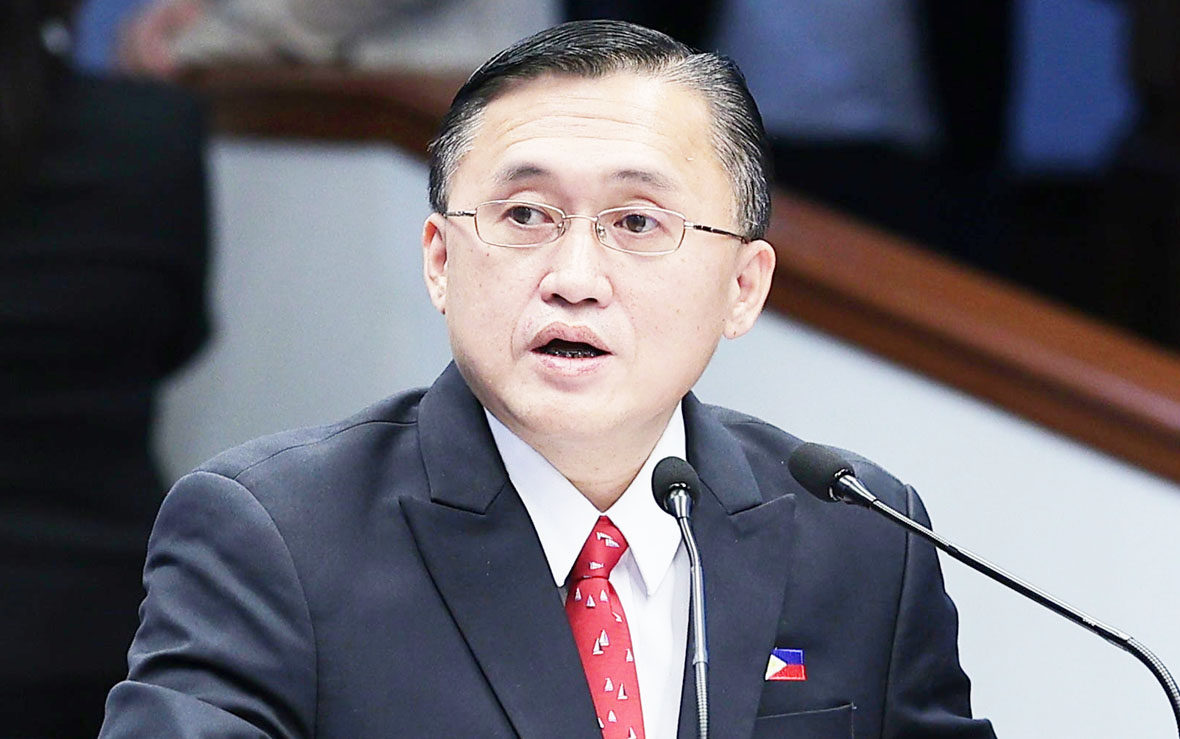SENATOR Christopher “Bong” Go continues to push for a more responsive government to meet the needs of Filipinos amid the changing times. He filed a series of proposed measures including bills that aim to address the need for enhanced digital infrastructure, modernized immigration services, and fiscal autonomy for the Judicial Branch.
“Our government must adapt to the changing times. These proposed bills will help modernize the way we govern, bringing us closer to a more efficient and transparent public service,” Go said.
Senate Bill No. 194, also known as the E-Governance Act, seeks to establish an integrated, interconnected, and interoperable information and resource-sharing and communications network that spans the entirety of the national and local government.
This measure is also part of the priority legislations of the administration of President Ferdinand Marcos Jr. as mentioned in his first SONA and the Philippine Development Plan 2023-2028. It is likewise aligned with Marcos Jr.’s ongoing initiative to strengthen data sharing among government agencies, particularly in combating agricultural smuggling.
“Digitization is no longer a luxury; it is a necessity. By creating a robust e-governance system, we can streamline processes, enhance transparency, and provide more efficient public services,” Go said.
The bill also stresses the urgent need for the digitization of paper-based workflows and the creation of an Integrated Government Network (IGN) to serve as the primary means for resource sharing and communication within the government.
The IGN will not only enhance efficiency but also act as the government’s focal information management tool and communications network.
Meanwhile, Go also filed SBN 1185, or the proposed “Bureau of Immigration Modernization Act” which aims to upgrade the BI’s systems, facilities, and personnel to meet the rapidly increasing demands of immigration services.
“Our BI plays a crucial role in safeguarding our borders and facilitating the movement of people,” Go said.
“By modernizing the immigration systems and providing better compensation, we can enhance their effectiveness and curb corruption,” he added.
Under this proposed legislation, existing positions within the BI will be upgraded to ensure they align with the evolving landscape. The creation of new positions within the bill will also significantly boost the productivity and efficiency of the bureau.
If passed into law, the proposed bill also includes an upgrade of salary grades to provide appropriate compensation commensurate with the profession.
Moreover, the bill authorizes the BI Board of Commissioners to retain and utilize 30% of its collections from immigration fees, fines, penalties, and other income to implement the measure and support the bureau’s modernization efforts.
The bill also provides the establishment of an Immigration Trust Fund that will further bolster the bureau’s modernization initiatives.
Recognizing the crucial role played by the Judiciary in upholding the rule of law and ensuring justice for all, Go has also proposed SBN 2111 also known as the “Fiscal Autonomy Act of the Judicial Branch of Government”. The bill aims to provide the necessary independence and resources for the Judiciary to effectively perform its functions.
“The Judiciary plays a crucial role in upholding the rule of law and ensuring justice for all. It is only fitting that we provide them with the necessary resources and independence to effectively perform their duties,” Go said.
The proposed bill seeks to affirm and strengthen the constitutional mandate and powers of the Judiciary as a co-equal branch of government. It highlights the importance of the Judiciary’s fiscal autonomy, which is mandated under Section 3, Article VIII of the Constitution.
By guaranteeing the fiscal autonomy of the Judiciary, Go said that the proposed bill not only upholds the Constitution but also demonstrates a commitment to a fair and just legal system.
“Fiscal autonomy is important for the Judiciary to ensure its impartiality and independence from other branches of government. This bill is a step towards empowering the Judiciary to fulfill its constitutional mandate,” Go said.
The E-Governance Act is currently pending under the Senate Committee on Science and Technology, while BI Modernization Act and Fiscal Autonomy Act of the Judicial Branch of Government will be deliberated under the Committee on Justice.

